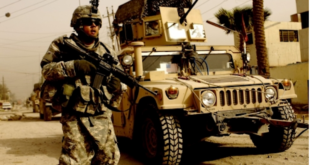TEHRAN (Reuters) — Electoral officials said on Tuesday they were guarding against fresh attempts to manipulate voters in Iran’s presidential election run-off after charges that military bodies rallied support for a hardline candidate.
Friday’s run-off, after an inconclusive first round, pits pragmatic cleric Akbar Hashemi Rafsanjani against ultra-conservative Tehran Mayor Mahmoud Ahmadinejad.
The outcome of the race, which analysts say is unpredictable, will probably shape how Iran tackles future ties with the West, including a tense nuclear standoff, and also determine the fate of domestic reforms.
Reformists complained of vote rigging in last Friday’s first round vote and have accused Ahmadinejad of mobilising a block of voters from the Basij, a paramilitary body which sees itself as the guardian of Islamic revolutionary principles.
A spokesman for the reformist-held interior ministry said no irregularities in the ballots were found but said it was aware of “the role of certain organisations in mobilising the votes.”
“Those who acted against the law in the first round, might try to do it again in the second round because of their strong will and we will try our best to prevent them,” he said, Iran’s student news agency ISNA reported.
He said the ministry urged the Revolutionary Guards to prevent such a mobilisation in the second round.
“The Revolutionary Guards and Basijis should not campaign for any of the candidates,” Revolutionary Guards Commander Yahya Rahim Safavi said, reported by the newspaper Iran.
Ahmadinejad’s aides deny receiving any official backing from the Revolutionary Guards or its subordinate the Basij.
Analysts say a hardline presidency could remove a moderating influence in Iranian decision-making, even though ultimate power in Iran lies with supreme leader Ali Khamenei, whose hardline supporters control key supervisory bodies.
Campaigning resumed on Tuesday after the hardline Guardian Council supervisory body confirmed the first round results following a limited recount. It dismissed vote rigging charges. Campaigning stops on Thursday, 24 hours before Friday’s run-off.
“We should give the destiny of the country to someone who truly respects freedom and wants to preserve the 27 years of national efforts to have a bright and hopeful future,” outgoing reformist President Mohammad Khatami said in a statement, urging a high turnout but without mentioning either candidate.
In the first round, turnout was 63 per cent of the 47 million eligible voters in a country where the minimum voting age is 15.
Ahmadinejad, 48, a former Basij instructor and ex-Revolutionary Guard officer, says Iran did not have a revolution to have democracy. He has played on his Islamic credentials and won over religiously conservative poor Iranians.
Rafsanjani, 70, who was president from 1989 to 1997, has urged voters to support him to “prevent all extremism.” He says he has the political savvy and influence to mend ties with the United States, broken after the 1979 Islamic revolution.
Ahmadinejad, who would be Iran’s first non-clerical president since 1981, says US ties will not solve Iran’s ills.
Reformers fear Ahmadinejad could fill government posts with loyalists, in the same way that he swept away old managers as Tehran mayor and put in young recruits in municipal bodies.
“Today we witness the presence of organised networks propagating moral corruption and I don’t know what the intelligence, interior and culture ministries are doing,” Ahmadinejad told a meeting of MPs, referring to three ministries in the hands of reformists.
Reformers have swung behind Rafsanjani. But analysts say such support may not be enough to derail Ahmadinejad. They say many of Iran’s religious poor see him challenging the vested business interests Rafsanjani.
 Eurasia Press & News
Eurasia Press & News



